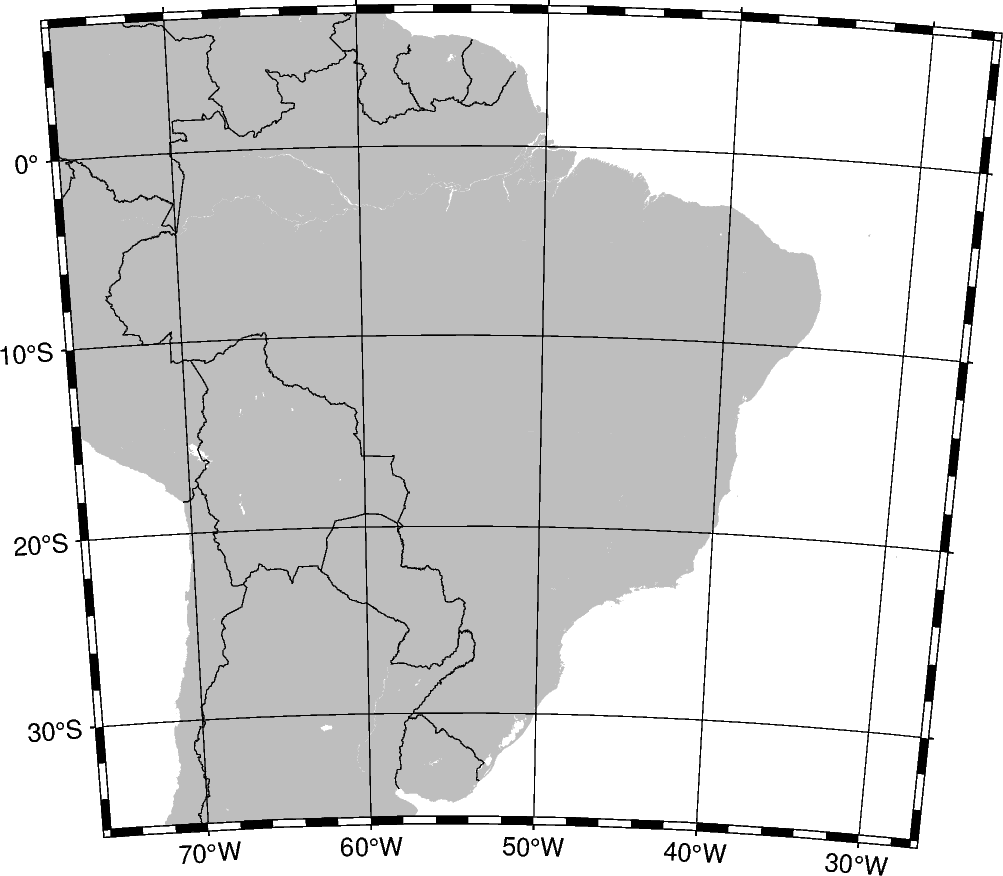Note
Click here to download the full example code
Albers Conic Equal Area
This projection, developed by Heinrich C. Albers in 1805, is predominantly used to map regions of large east-west extent, in particular the United States. It is a conic, equal-area projection, in which parallels are unequally spaced arcs of concentric circles, more closely spaced at the north and south edges of the map. Meridians, on the other hand, are equally spaced radii about a common center, and cut the parallels at right angles. Distortion in scale and shape vanishes along the two standard parallels. Between them, the scale along parallels is too small; beyond them it is too large. The opposite is true for the scale along meridians.
blon0/lat0/lat1/lat2/scale or Blon0/lat0/lat1/lat2/width
The projection is set with b or B. The projection center is set by lon0/lat0 and two standard parallels for the map are set with lat1/lat2. The figure size is set with scale or width.

Out:
<IPython.core.display.Image object>
import pygmt
fig = pygmt.Figure()
# Use the ISO country code for Brazil and add a padding of 2 degrees (+R2)
fig.coast(
projection="B-55/-15/-25/0/12c", region="BR+R2", frame="afg", land="gray", borders=1
)
fig.show()
Total running time of the script: ( 0 minutes 1.180 seconds)